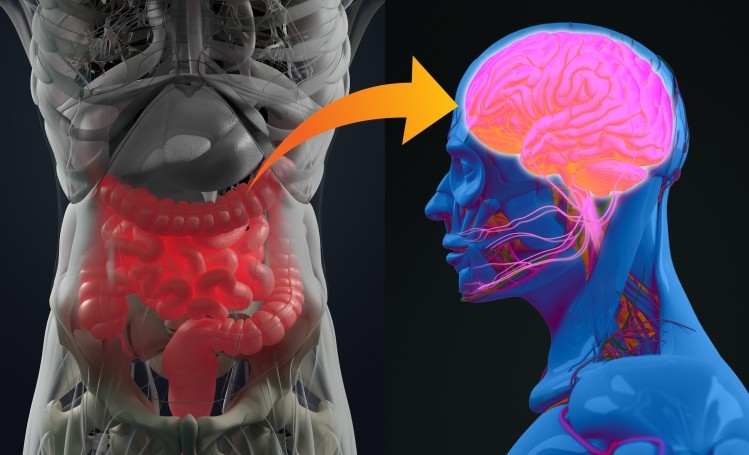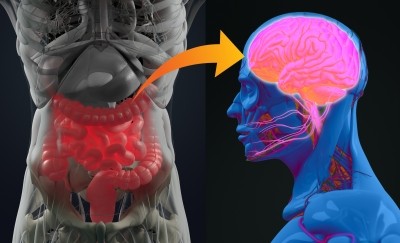Study finds probiotic alleviates depression and improves sleep

A substantial body of work indicates that the human gut microbiome is implicated in mental health via bidirectional interactions within the gut-brain axis, which involves the immune, neural, endocrine, and metabolic pathways between the gut and the brain. Thus, the oral intake of probiotics may have therapeutic effects on psychiatric symptoms by promoting a healthy and balanced gut microbiome.
In recent years, accumulating literature suggests that probiotics composed of specific strains of genera Lactobacillus and Bifidobacterium may have the potential to prevent and treat various psychiatric conditions such as depression and anxiety. However, the researchers behind the current study believe only a few RCTs have investigated the effects of probiotics containing Lactobacillus and Bifidobacterium strains on mental health in healthy individuals, and studies that are out there have used small sample sizes and did not conduct gut microbiome analyses to confirm the restoration of homeostasis of the gut microbiome - one of the most reliable markers of probiotic effects.
The probiotic NVP-1704 is a mixture of Lactobacillus reuteri NK33 and Bifidobacterium adolescentis NK98. Several preclinical trials have showed that NVP-1704 can alleviate anxiety and depression in mice by modulating gut immune responses and gut microbiota composition.
The present study aimed to examine the efficacy and safety of NVP-1704 administration for the management of stress-related symptoms, such as depression, anxiety, and insomnia, in healthy adults. The research team conducted a randomised, double-blind, placebo-controlled parallel study at the Seoul National University Bundang Hospital, in Korea, with a sample size of 22 participants, and included a gut microbiome analysis to confirm the effects of our intervention.
Participants were randomly assigned to either the intervention or the placebo group. They were instructed to take two capsules with water once a day, daily, for eight weeks. Each 500 mg capsule of NVP-1704 contained 2.5 × 109 colony-forming units of microorganisms (2.0 × 109 CFU for Lactobacillus reuteri NK33 and 0.5 × 109 CFU for Bifidobacterium adolescentis NK98).
All participants were asked to complete self-report questionnaires regarding symptoms of stress, depression, and anxiety at the first, third, and final visits.
Subjective sleep quality and symptoms of insomnia were assessed using the Pittsburgh Sleep Quality Index (PSQI) and Insomnia Severity Index (ISI), respectively.
Blood samples were taken at the initial and follow-up assessments. To assess the inflammatory response and hypothalamic–pituitary–adrenal (HPA) axis activity, we measured the serum levels of interleukin 6 (IL-6), tumor necrosis factor alpha (TNF-alpha), adrenocorticotropic hormone (ACTH), and cortisol. Simultaneously, the blood level of brain-derived neurotrophic factor (BDNF) was evaluated as a neuroplasticity index.
The participants were asked to submit faecal samples at the final visit for bacterial sequencing.
24 h dietary recalls and food diaries reported at the second, third, and final visits, the daily intakes of calories, carbohydrates, proteins, fat, water, dietary fiber, vitamins, and mineral nutrients were calculated.
The resulting data suggests that NVP-1704 is a safe and well-tolerated probiotic with beneficial effects on depression and sleep in healthy adults. Our study also revealed a significant reduction in serum pro-inflammatory cytokine IL-6 levels after NVP-1704 treatment. In line with these findings, our microbiome analysis demonstrated that the individuals treated with NVP-1704 had a gut microbiota composition with reduced ratios of Enterobacteriaceae to Bifidobacteriaceae and Enterobacteriaceae to Lactobacillaceae, which could be associated with better mental health.
They conclude that the significant reduction in the serum pro-inflammatory cytokine IL-6 levels suggests the administration of Bifidobacterium and Lactobacillus strains can downregulate pro-inflammatory cytokine secretion.
Their report states: “Although the exact mechanism needs to be further elucidated, the modulation of neuroinflammatory pathways due to beneficial modification of the gut microbiome may be the key components underlying the beneficial effects of NVP-1704. Neuroinflammation induced by various medical conditions plays an important role in the pathophysiology of depression, anxiety, and insomnia. Therefore, the suppression of IL-6 might be responsible for the psychotropic effects of NVP-1704 treatment.”
Large-scale, highly controlled, longitudinal human studies may be conducted in the future to confirm the beneficial effects of various probiotics on mental health and sleep.
Source: Nutrients
Lee, H.J.; Hong, J.K.; Kim, J.-K.; Kim, D.-H.; Jang, S.W.; Han, S.-W.; Yoon, I.-Y.
“Effects of Probiotic NVP-1704 on Mental Health and Sleep in Healthy Adults: An 8-Week Randomized, Double-Blind, Placebo-Controlled Trial”
https://doi.org/10.3390/nu13082660 (registering DOI)















